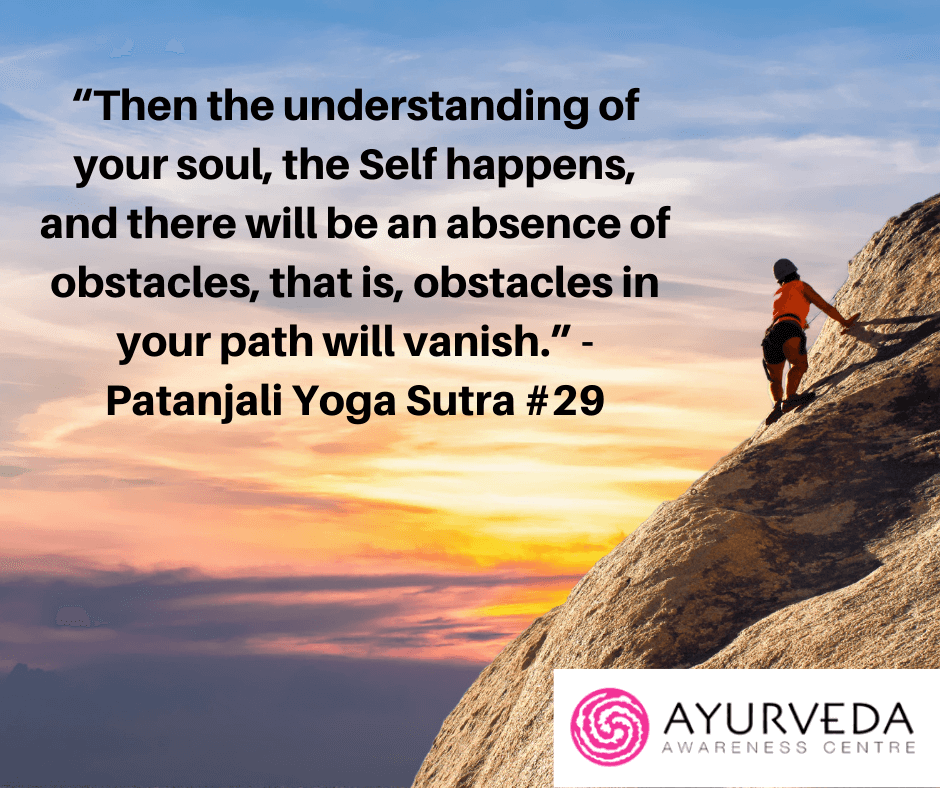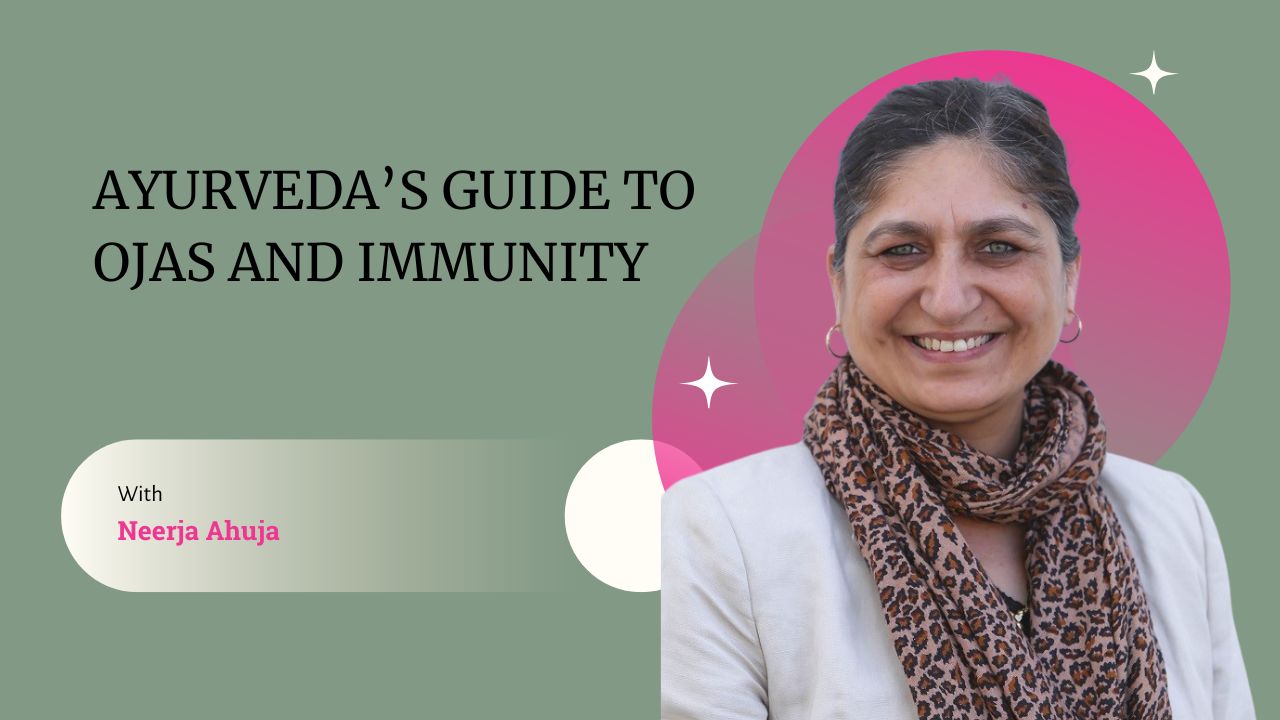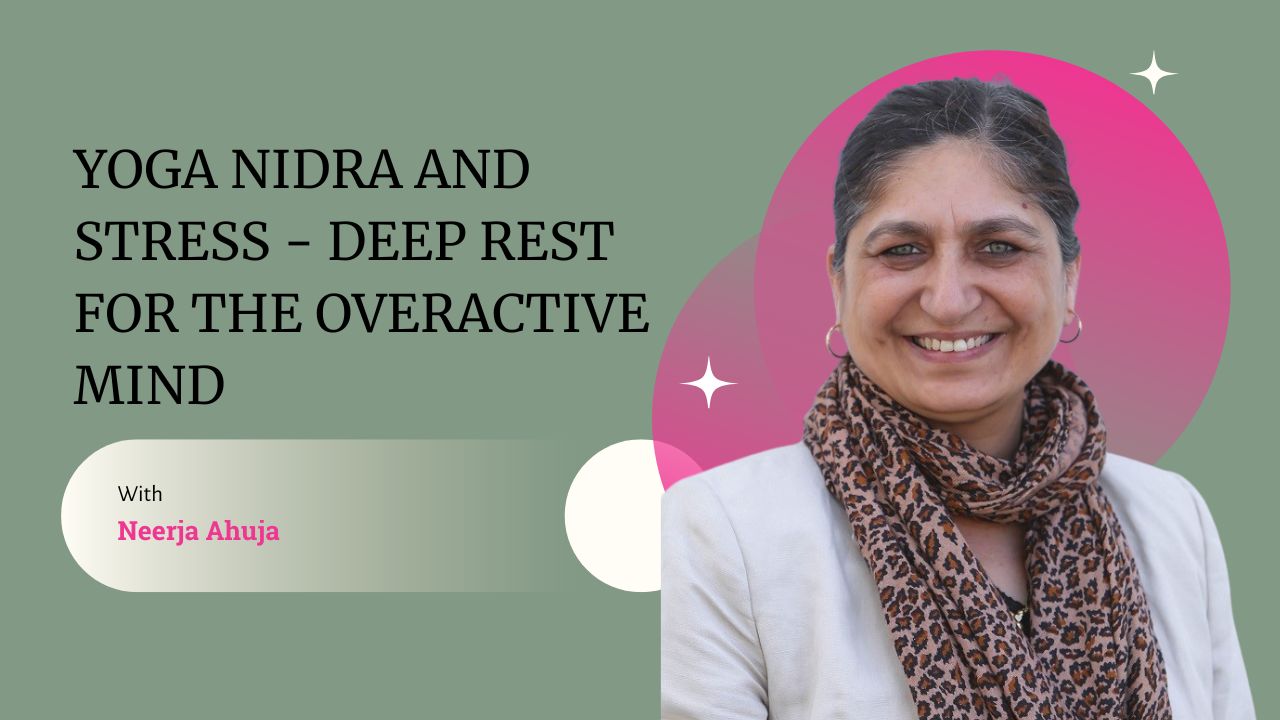The sanskrit word for obstacle is antaraya, which means impediment, or “to come between”. Obstacles come in many shapes and sizes, both physical and mental.
The 9 obstacles that distract our thought are, disease, apathy, doubt, carelessness, indolence, dissipation, false vision, failure to attain a firm basis in yoga, and restlessness. – Patanjali
Who is Sage Patanjali
Sage Patanjali (lived sometime between 500 and 200 B.C.), is said to be the greatest yoga master of all times, the author of the principle text on yoga — The Yoga Sutras, presenting the Soul of all great masters of yoga who practiced, taught and lived yoga in their lives. The life of Patanjali is an enigma to modern historians, and almost nothing is known about this great Master. He was perhaps the head of a school in which “Swadhyaya”, study of the Self, was regarded as an important aspect of spiritual practice. He also wrote significant works on Ayurveda and Sanskrit grammar. But anonymity is typical of the great sages of those times. They recognized that their teaching was the outcome of a supportive group effort that covered several generations, and they refused to take credit for themselves, often attributing their work to some other, older teacher, so Patanjali may have been more than one person.
List of Nine Obstacles That Distract Our Thoughts
Patanjali may have been talking about yoga practice, but these are the ones that can be obstacles at home or at work too – wherever we want to make progress.
- Sickness (Vyadhi) – physical illness
- Languor (Styana )– lack of interest or enthusiasm or feeling of mental stagnation
- Doubt (Samshaya ) or indecision, self doubt, lack of confidence in our own potential
- Heedlessness (Pramada) – carelessness or negligence , lack of mindfulness
- Sloth (Alasya) – physical laziness, fatigue
- Dissipation (Avirati)– desire for sense objects, overindulgence, debauchery , non-abstaining
- False vision (Bhrantidarshana)– living under illusion or wrong understanding.
- Nonattainment of yogic stages (Alabdhabhumikatva)- missing the point or inability to hold on to what is achieved. In working toward our goals, we may face situations where we feel like we’re failing or not progressing fast enough or feel like giving up altogether. In those moments, showing up as a lack of perseverance or grounding is what he is talking about.
- Instability in these stages (Anavasthitatva )– inability to maintain the achieved progress.
If we look at these 9 obstacles again, the first one is physical, but other eight can be considered mental or emotional.
Furthermore, four distractions follows these obstacles.
- Suffering or pain
- Depression or melancholy
- Physical restlessness and
- Disturbed breathing.
We notice that from time to time, we all seem to go through these obstacles. Think of the time when you have experienced one, or more of these. These obstacles will always be there, as part of our life. Once we can see this, and accept it, we can then learn move past it, work with it, and go beyond it.
The next thing to think about is – what is the best way to deal with these obstacles? Even those who are well prepared for the journey, they also run into obstacles. That is the way of life. And if that is the way of life, we need to have some skills in how to get over them. No point in just being angry, upset, frustrated, or depressed or in any other way creating negativity in ourselves. And if we do, then get over it fast and move on.
Supports
Our value system, where we anchor ourselves? It may be intangible, but that is our greatest support in overcoming these obstacles. Some of these support structures are:
- Faith in the rightness of what you are doing and in the certainty of your own success. Energy and enthusiasm strengthens faith
- Clear intention and constant integrated awareness of what you are doing and why, both for short term and long-term goals.
- Contentment, in both success and failure, and self-acceptance; at the same time, the willingness to take risks and accept uncertainty.
- Careful discrimination (viveka) between what is important and what is not, and the willingness to surrender to that.
- Open minded study (swadhyaya) and reflection and contemplation without any attachment to a specific result. “By listening to instructions, by contemplation and by being in the company of a calm and sure minded preceptor, doubts can be removed.”
- Regular, sustained, patient practice
- Some other supporters are enthusiasm, courage for overcoming obstacles, resilience, sense of gratitude.
Yoga & Ayurveda Recommendation
Yoga and Ayurveda recommend many solutions to removing obstacles and getting supporters. Pranayama and 8 limbs of yoga can remove these obstacles. In Ayurveda, we recommend life-supporting diet (ahara), including foods to favour and foods to avoid; life-supporting lifestyle (vihara); herbs and treatments (aushadhi). According to Ayurveda, these obstacles are coming from having mental, emotional or physical “toxins” and so there are ways of removing them. Though most of these are subtle, they can be accessed through physical and that is why importance is given to diet and lifestyle.
In Ayurveda Awareness Centre, we run workshops, seminars and courses in Ayurveda and Self Care, as well as offer consultations and panchakarma treatments for removing these “toxins” and for rejuvenation.





